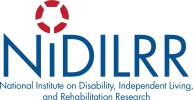 Project Director
Project Director
University of Washington’s TBI Model System
Jeanne Hoffman, Ph.D., ABPP is a board-certified clinical psychologist at the Rehab Medicine Clinic at the University of Washington Medical Center, head of the UW Medicine Division of Rehabilitation Psychology and Neuropsychology, and a UW professor of Rehabilitation Medicine. She is an attending psychologist at the UW Medical Center Montlake Campus where she helps individuals cope with new disabilities and manage symptoms of depression and anxiety. She conducts research to improve outcomes for individuals with traumatic brain injury (TBI) and spinal cord injury (SCI) and examines access to healthcare for individuals with a disability. Her other research interests include adjustment to disability and new healthcare models and health services.
Dr. Hoffman is involved in several clinical trials. She is the Project Director for the UW TBI Model System funded by the National Institute on Disability, Independent Living, and Rehabilitation Research (NIDILRR), leading a local project examining the use of collaborative care to treat pain in individuals with TBI. She is a Co-Principal Investigator of a Patient-Centered Outcome Research Institute (PCORI) funded study comparing the effectiveness of two approaches to the transition from inpatient rehabilitation to the community for individuals with moderate to severe TBI. In addition, she is the Principal Investigator of the UW Late Effects of Traumatic Brain Injury (LETBI) and the UW Late Effects of Traumatic Brain Injury in Military Veterans (LETBI-MIL) studies funded by the NIH and the DOD. LETBI and LETBI-MIL aim to identify predictors, clinical phenotypes, imaging biomarkers, and histopathological signatures of neurodegenerative disease in Veteran and civilian populations with traumatic brain injury. Research in this field typically begins when a researcher receives the donated brain of someone who sustained brain trauma in life. However, the goal of LETBI is to identify clinical signatures of underlying pathology when someone is alive, so people can be diagnosed earlier — when there’s still time to treat it. Dr. Hoffman has also led other clinical trials such as telephone-delivered cognitive behavioral therapy versus education for Veterans with pain and TBI, evaluating the effectiveness of scheduled telephone follow-up for individuals with SCI, the impact of exercise on mood after TBI, and assisted with studies of Amitriptyline to prevent headache in individuals with new mild TBI and Sumatriptan to treat headache in those who have had a TBI.
In addition, Dr. Hoffman continues to be involved in examining pain after TBI as the Co-Principal Investigator on a study to gather information on pain after TBI for 3,800 individuals enrolled across 13 TBI Model System centers, which builds upon prior study of the natural history of headache research. Dr. Hoffman has also been involved with the analysis of large datasets including several projects using the TBI Model System National Database, the National Trauma Data Bank, SCI Model System National Database, the Medicare Current Beneficiary Survey, and data from Kaiser Permanente of Northern California with a focus on access to treatment for individuals with disability.
